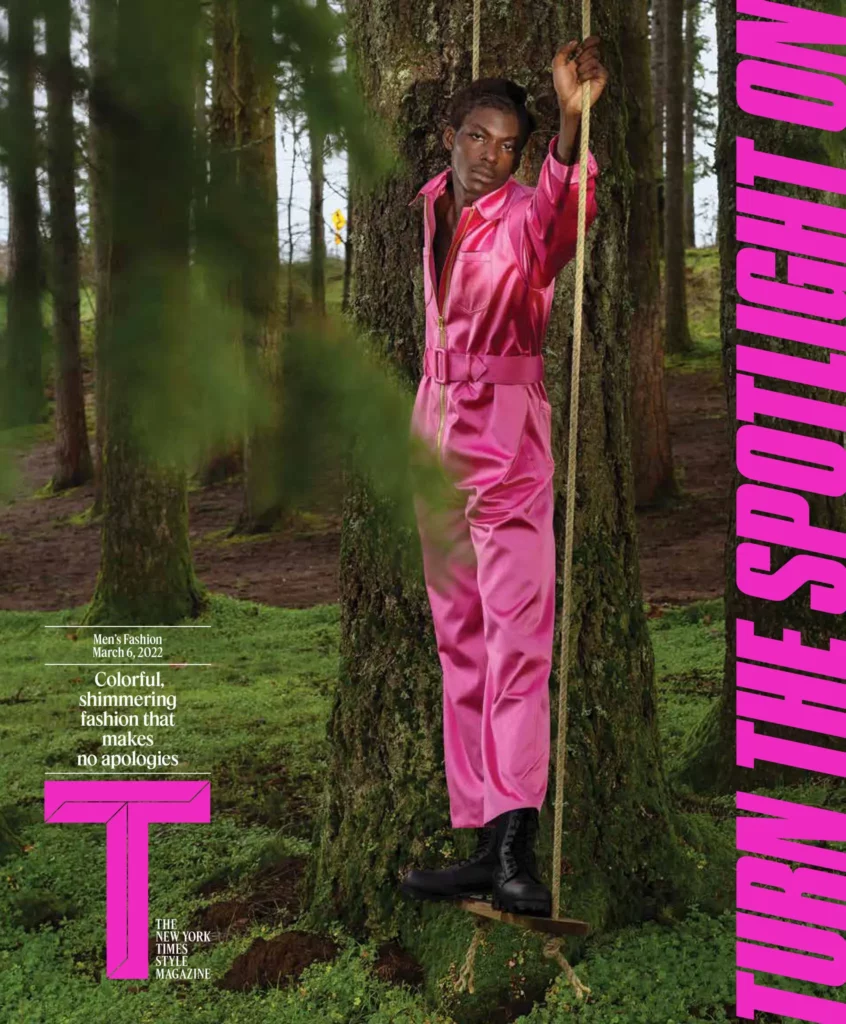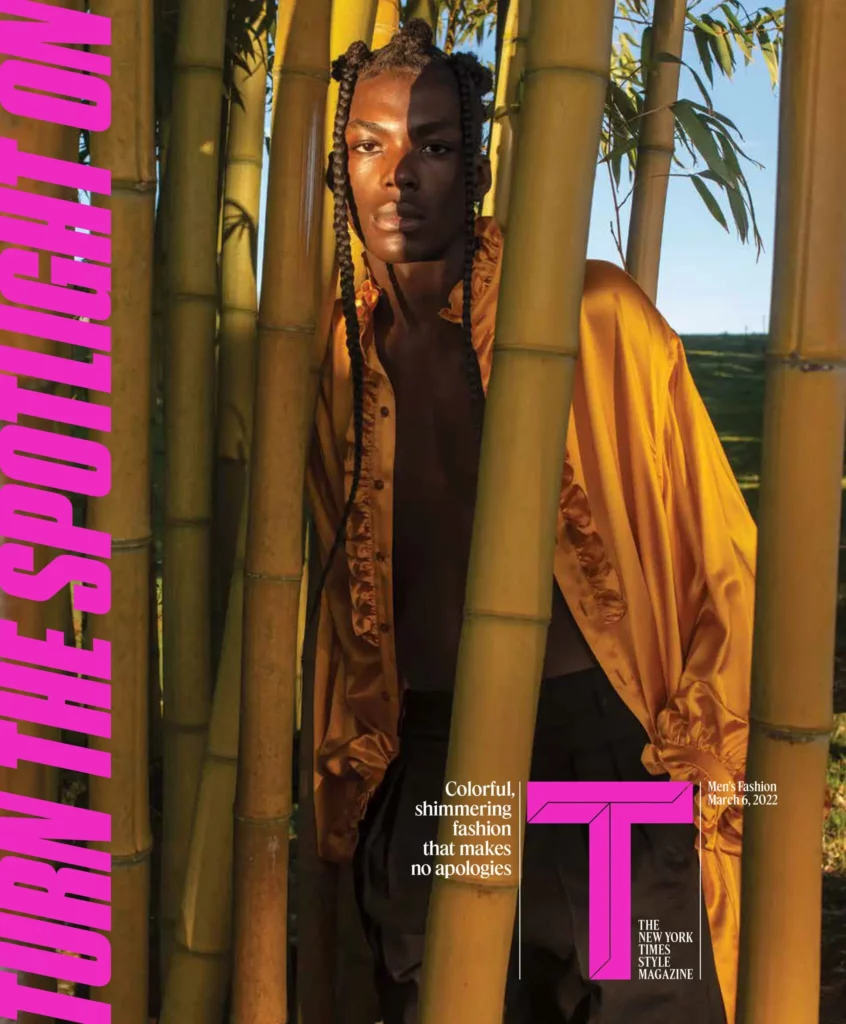There’s a phrase that magazine editors use when we’re trying to convince our colleagues that someone deserves a story written about them: that the person is “having a moment.” When applied to an individual, it’s both a recognition and a bestowal, affirmation of the artist’s contribution to the culture.
But when the phrase is applied to a group of people, one defined by some intrinsic part of their identity, the compliment sours — it suggests that the individuals within it are being recognized not for their personal accomplishments but for being part of some larger trend. And all trends, no matter how bright they burn, are fated to fade.
In T’s spring Men’s Fashion issue, Mark Harris takes a look at a group of individuals whose shared identity is both inseparable from their distinct achievements and also incidental to it. Gay humor as written by gay comics, in ways either coded or forthright, has long been one of the key strands of American humor — that’s nothing new. What is new about this microgeneration of out, gay, mostly male comics that Harris interviewed (the imaginative, sui generis Cole Escola is nonbinary), all of whom are between the ages of 27 and 35, is its members’ unapologetic, for-us, by-us attitude. This group of performers, Harris writes, are “at once political and campy, cheerful and subversive, costumed and confessional, explicit and mainstream. In an era when sexual identities are proudly porous, every kind of gay comedian gets to be every kind of gay comedian, sometimes within a single five-minute scene.” What’s also new is the perspective shift: No longer are these comics the object of the joke — they’re writing the jokes, but they’re telling them, too. Our laughter is now in their control.


But these comics’ journey is remarkable for another reason, as well: Their paths to our consciousness have been as varied as the people themselves. Some of them have taken the traditional stand-up route; others started on YouTube and Twitter, or in a podcast or a television show writers’ room. Their arrival — both how they got here and what they have to say now that they have our attention — is a reminder that the old systems are changing. The people who once got to choose who got through the door are no longer solely in charge. The people who got to choose what was funny are no longer solely in charge. So who gets the last laugh? We all do.



















Comments